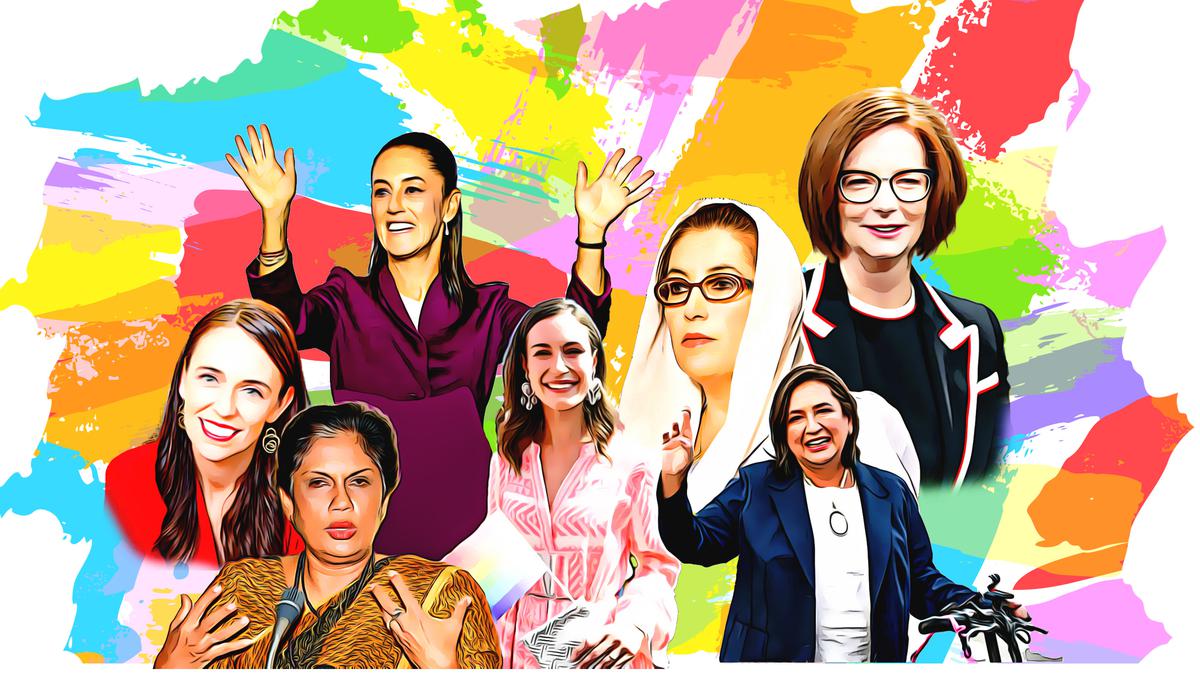
Also missing: women at this year’s G20
The Hindu
2024 elections worldwide lack female contenders; gender gap persists in leadership, highlighting need for more women in power.
This is the year of elections, with more than 60 countries, including some of the world’s most prominent democracies — India, U.S., Indonesia, U.K., South Africa — and others like Russia and Iran, all seeing polls in 2024. What stands out too, is that in none of these countries are women amongst the likely contenders for power. Mexico is an exception, with two women in leading positions for the Presidential election in June.
As a result, at the G20 in Brazil this November, Italian Prime Minister Giorgia Meloni could be the only other woman leader of a country, while European Commission president Ursula Von Der Leyen would be at the table depending on how she fares in the EU elections this summer. The previous decade actually fared better in terms of gender representation at the G20 high table: Germany’s Merkel, Argentina’s Kirchner, Australia’s Gillard, Brazil’s Rousseff and IMF Chief Lagarde all attended the G20 together in 2011 and 2012.
While the past century has seen a number of women occupying top positions, they make up only 23% of parliamentarians worldwide, leaving a whopping gender gap of over 50%. As of January 2024, there are only 26 countries where women serve as heads of state and/or government (in two countries they are in both positions). At this rate, UN Women calculates that “gender equality in the highest positions of power will not be reached for another 130 years”. It is not, however, the numbers of women in leadership roles, but the selective treatment they face when in positions of power that is possibly the most discouraging factor.
When she stood up to make her famous “misogyny speech” in parliament in 2012, Australian Prime Minister Julia Gillard couldn’t have been clearer, or angrier about the treatment. The parliament speaker at the time had been accused of sexually harassing a junior, but the attack by then opposition leader (subsequently Prime Minister) Tony Abott was focused on Gillard directly, admonishing her for covering up the speaker’s crimes, and even accusing her of sexism.
“The Leader of the Opposition says ‘do something’; well he could do something himself if he wants to deal with sexism in this Parliament. He could change his behaviour, he could apologise for all his past statements, he could apologise for standing next to signs describing me as a witch and a bi***,” Gillard said, detailing some of the abuse hurled at her.
The speech was hailed around the world, and even turned into a song. Gillard’s words resounded with women in public office everywhere, who face a double standard when it comes to how they are reported on, expected to behave and competed with. “For the three years and three days that Julia Gillard was prime minister of Australia, we debated the fit of her jackets, the size of her bottom, the exposure of her cleavage, the cut of her hair, the tone of her voice, the legitimacy of her rule and whether she had chosen, as one member of Parliament from the opposition Liberal Party put it, to be “deliberately barren”, wrote Julie Baird in The New York Times a year later, after Gillard, Australia’s first female Prime Minister (and only one thus far), resigned a year later.
General Elections 2024 | When campaign trails were carnivals













